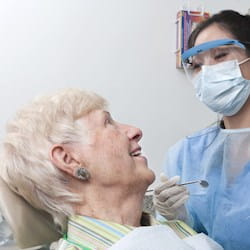THE number of adults attending a dentist in Scotland in December 2020 was only 28 per cent of the 2018-19 monthly average and around 25 per cent for children, according to statistics published by Public Health Scotland.
The British Dental Association is calling on all political parties to set out an effective response to this “crisis” facing dentistry in Scotland due to the “collapse in attendance during the COVID pandemic”.
The BDA points out that traditional measures of 'participation' - capturing attendance at an NHS dentist in the past two years - have less meaning in the context of Covid-19, as the full impact of the pandemic has yet to filter through.
However, data shows that in 2020, children and adults from the most deprived areas were less likely to have seen their dentist within the last two years than those from the least deprived areas (73.5 per cent compared to 85.7 per cent of children and 55.9 per cent compared to 67.1 per cent of adults). These inequalities in access between the most and least deprived areas have grown since 2019, particularly in children.
The BDA has warned lower levels of participation will inevitably translate into a higher disease burden. Early signs of decay and oral cancers are picked up at routine check-ups, and delays will mean both higher costs to the NHS and worse outcomes for patients.
Both the Welsh and Northern Irish governments have set aside ring-fenced investment to improve practice ventilation and thereby increase patient numbers while meeting tight Covid-19 restrictions. The BDA points out that no commitments have yet been made by the Scottish Government and clear guidance is awaited for practices.
Robert Donald, Chair of the British Dental Association’s Scottish Council said: "These numbers underline the scale of the challenge ahead. Millions have missed out on dentistry. Problems that could have been caught early, from decay to oral cancer, have been missed.
"Scotland’s huge oral health inequalities cannot be allowed to widen. Every party heading into May’s election now has a responsibility to set out how they will ensure families across Scotland can get the care they need."
This page was correct at the time of publication. Any guidance is intended as general guidance for members only. If you are a member and need specific advice relating to your own circumstances, please contact one of our advisers.
Save this article
Save this article to a list of favourite articles which members can access in their account.
Save to library
